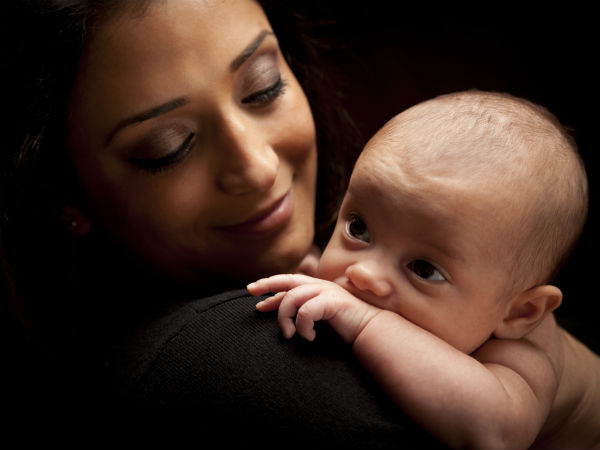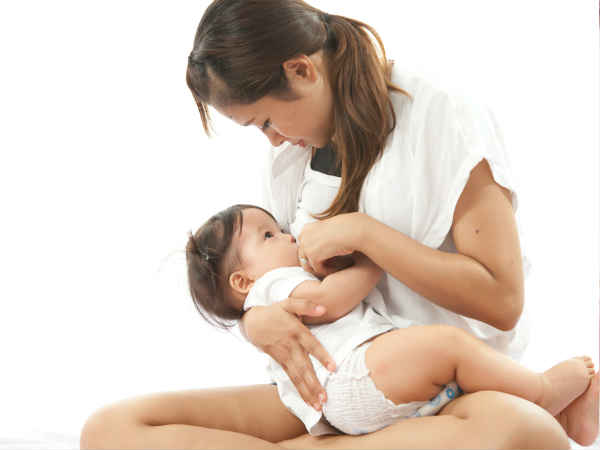Just In
- 3 hrs ago

- 13 hrs ago

- 14 hrs ago

- 18 hrs ago

Don't Miss
- Movies
 Varshangalkku Shesham Box Office Collection Day 14 Prediction: Pranav & Dhyan's Movie Maintains Momentum
Varshangalkku Shesham Box Office Collection Day 14 Prediction: Pranav & Dhyan's Movie Maintains Momentum - Finance
 Stock Market Live Updates: Market Likely To Open With Healthy Gains, Nifty Seen Above 22,450
Stock Market Live Updates: Market Likely To Open With Healthy Gains, Nifty Seen Above 22,450 - Sports
 Most Sixes in IPL Since 2022: Shivam Dube Back on Top in The Big-Hitting Charts After CSK vs LSG in IPL 2024
Most Sixes in IPL Since 2022: Shivam Dube Back on Top in The Big-Hitting Charts After CSK vs LSG in IPL 2024 - Technology
 Apple Confirms Special Event for May 7: iPad Air, iPad Pro 2024 Models Expected
Apple Confirms Special Event for May 7: iPad Air, iPad Pro 2024 Models Expected - News
 Senator Lambie Calls For Elon Musk's Imprisonment Over Wakeley Church Stabbing Posts
Senator Lambie Calls For Elon Musk's Imprisonment Over Wakeley Church Stabbing Posts - Education
 Telangana Inter Manabadi 1st and 2nd Year Results 2024 to be Declared Tomorrow
Telangana Inter Manabadi 1st and 2nd Year Results 2024 to be Declared Tomorrow - Automobiles
 Chrysler Pacifica Marks Seven Years As Most Awarded Minivan With New Campaign
Chrysler Pacifica Marks Seven Years As Most Awarded Minivan With New Campaign - Travel
Kurnool's Hidden Gems: A Guide To Exploring India's Lesser-Known Treasures
Human Breast Milk Banks: The Latest Initiative Against India’s High Infant Mortality Rate
Benefits of breastfeeding and how human milk banks will help reduce the national infant mortality rate.

Motherhood is a gift.
Ask any new mother and she will tell you how everything pales before the experience of holding your newborn for the first time, looking into its big, wide eyes, and feeling your protective instincts take over when you cradle this little, fragile bundle close to your chest. Losing this child suddenly becomes your worst nightmare.

Unfortunately, this nightmare is a reality for many women. That's why, this week, as we celebrate the International Breastfeeding Week (August 1st to 7th), let us focus our attention on human breast milk banks - the healthcare initiative that is improving the lives of millions of mothers and newborns around the globe.
Amaara: India's First Pasteurized Human Milk Bank. Or Is It?
Historically speaking, the first human milk bank in India was established in 1989 by Lokmanya Tilak Hospital in Sion, Mumbai. But the concept of donating breastmilk, and using donated milk to supplement mothers who cannot breastfeed or produce less milk, has always faced severe societal stigma, which is the main reason why the concept never took root in India.
Now Fortis La Femme, a hospital for women and children, is all set to change that scenario with Amaara. In association with the non-profit organization, Breast Milk Foundation, the hospital recently opened a fully-functional human milk bank facility in the Delhi, NCR region, and plans to expand to other major cities of India, like Bangalore and Chennai.

The aim is to create a safe milk bank that mothers in need can approach without fear for their child's health. But it isn't the only initiative in this endeavour.
A month back the Union Ministry of Health and Family Welfare launched India's first government-run milk bank, the National Human Milk Bank, at the Lady Hardinge Medical College.
This initiative is in association with the government of Norway and Oslo University, and is a two-pronged effort that will help reduce the alarming rate of neonatal mortality in India (at present the highest in the world), as it improves India's diplomatic ties with Norway.
But why are breast milk banks cropping up suddenly?
The Breast Milk Crisis And The Serious Need For Human Milk Banks

In India, 66% babies die before 1 year of age due to poor nourishment and neonatal diseases. In fact, 1 out of every 3 dead newborns in the world is from India.
But what these statistics fail to project is the pain and heartbreak every one of those deaths bring with them. Deaths that could have been prevented by better healthcare facilities in India. The initiative to store breast milk from donors is an effort to do exactly that.
While most women take breastfeeding for granted, those mothers who suffer from Breast Hypoplasia (insufficient milk-producing glands in the breasts) know first-hand the agony of watching their newborns shrivel away and sometimes even die. Because, in reality breast milk doesn't just nourish newborns. It is the difference between their life and death.

The Life-saving Benefits Of Breastfeeding
The WHO guidelines for breastfeeding state clearly that it is absolutely crucial for mothers to breastfeed their babies for at least 6 months to 1 year of age.
Why?
Because of the following reasons:-
1. Breastmilk contains a high amount of antibodies, especially IgA, which is transferred naturally from the mother to baby through feeding. A process that gives the newborn innate immunity against diseases that are known to cause death in neonates.
2. Colostrum, the milk produced by the mother immediately after giving birth, is rich in proteins, vitamin A and all other nutrients that the newborn needs to grow and function optimally.
3. Breastfeeding helps in brain development and improves cognitive ability.
4. It reduces the risk of developing chronic diseases later on in infants by almost 20%.
Given these benefits, and the equally disastrous consequences of failing to breastfeed your child in the early days after birth, it makes sense why human milk banks are needed now more than ever.
But Is It Safe To Give Your Newborn Donated Breast Milk?

While feeding your child donated milk through online breast milk portals is severely cautioned against, you can safely use the milk stored in proper milk banks.
This is because these facilities have stringent guidelines for screening milk donors. Guidelines that prevent mothers who test positive for HIV, hepatitis B & C, and syphilis from donating milk. In fact, these even screen out women who are on medications, use illegal drugs, smoke or drink alcohol regularly.
But the formalities do not end at screening. The donated milk is then pasteurized to kill any remaining bacterial or viral components. And while that does reduce the nutritious value of the donated milk, it is still a life-saving option for many.
If you enjoyed reading this article, please share it with your friends to help spread the awareness this week. You never know whose life you might save that way.
Benefits of Breastfeeding for Mothers and Babies
-
 pregnancy parentingExpert Opinion On Breastfeeding: How It Will Help Baby And Mother
pregnancy parentingExpert Opinion On Breastfeeding: How It Will Help Baby And Mother -
 pregnancy parentingShattering Myths: Breastfeeding Success After Surviving Breast Cancer
pregnancy parentingShattering Myths: Breastfeeding Success After Surviving Breast Cancer -
 pregnancy parentingWeight Loss: Can I Diet While Breastfeeding? How Much Weight Can I Lose?
pregnancy parentingWeight Loss: Can I Diet While Breastfeeding? How Much Weight Can I Lose? -
 pregnancy parentingBreastfeeding Pain: What To Do When It Hurts
pregnancy parentingBreastfeeding Pain: What To Do When It Hurts -
 pregnancy parentingWhat To Do If You Get Dengue When Breastfeeding
pregnancy parentingWhat To Do If You Get Dengue When Breastfeeding -
 pregnancy parentingWorld Breastfeeding Week 2023: Can You Breastfeed If You Have Hyperthyroidism?
pregnancy parentingWorld Breastfeeding Week 2023: Can You Breastfeed If You Have Hyperthyroidism? -
 pregnancy parentingWorld Breastfeeding Week 2023: Expert Tips For Breastfeeding In Public; Is It Legal In India?
pregnancy parentingWorld Breastfeeding Week 2023: Expert Tips For Breastfeeding In Public; Is It Legal In India? -
 pregnancy parentingWorld Breastfeeding Week 2023: When Breastfeeding Might Not Be The Right Choice: Who Shouldn't Breastfeed?
pregnancy parentingWorld Breastfeeding Week 2023: When Breastfeeding Might Not Be The Right Choice: Who Shouldn't Breastfeed? -
 healthBreastfeeding And Periods: Is It Okay To Breastfeed Your Baby During Menstruation?
healthBreastfeeding And Periods: Is It Okay To Breastfeed Your Baby During Menstruation? -
 pregnancy parentingWorld Breastfeeding Week 2023: What Do You Do If Your Baby Doesn’t Like Breastfeeding?
pregnancy parentingWorld Breastfeeding Week 2023: What Do You Do If Your Baby Doesn’t Like Breastfeeding? -
 pregnancy parentingWorld Breastfeeding Week 2023: Do Babies Choke On Breast Milk? Find Out Here!
pregnancy parentingWorld Breastfeeding Week 2023: Do Babies Choke On Breast Milk? Find Out Here! -
 pregnancy parentingWorld Breastfeeding Week 2023: Breastfeeding Made Easy; Expert Advice For New Mothers
pregnancy parentingWorld Breastfeeding Week 2023: Breastfeeding Made Easy; Expert Advice For New Mothers


 Click it and Unblock the Notifications
Click it and Unblock the Notifications



